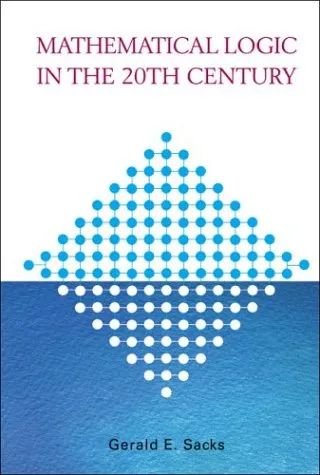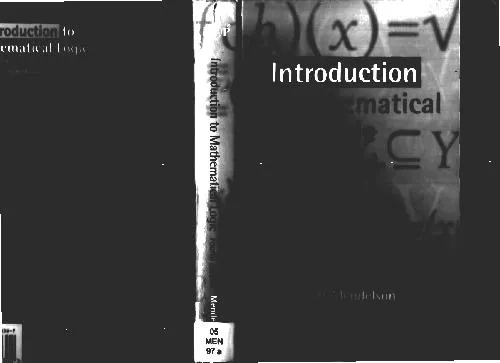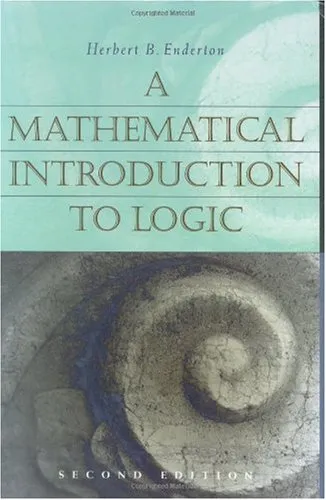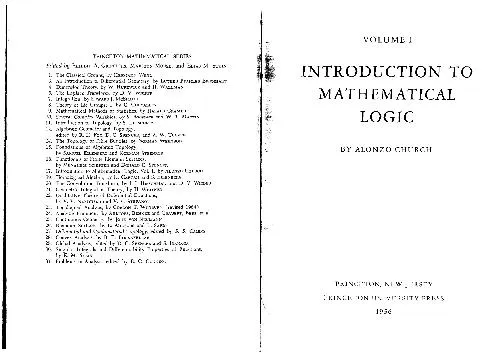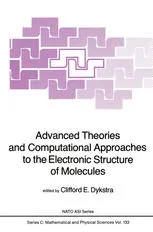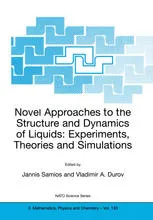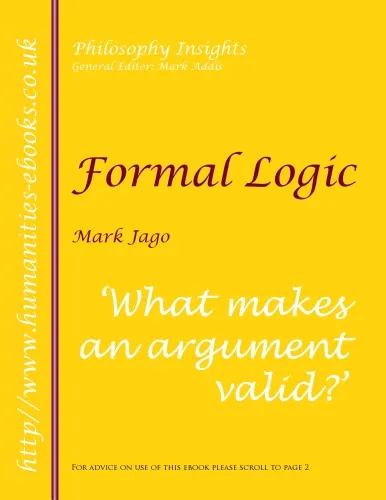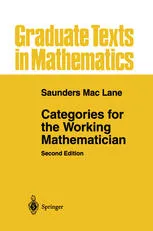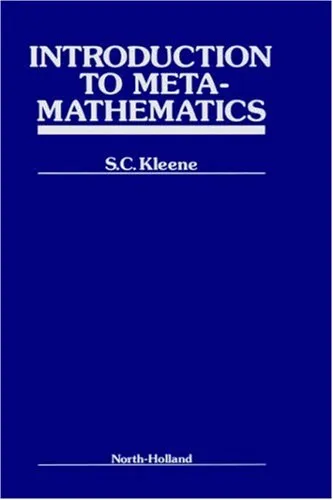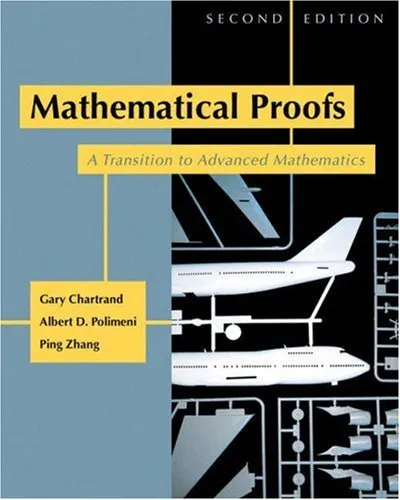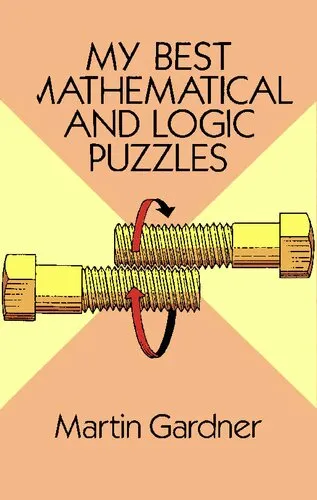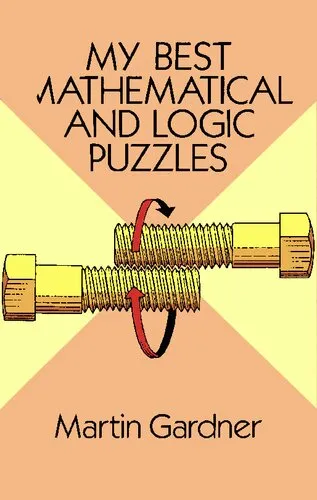Mathematical Logic in the 20th Century
4.6
بر اساس نظر کاربران

شما میتونید سوالاتتون در باره کتاب رو از هوش مصنوعیش بعد از ورود بپرسید
هر دانلود یا پرسش از هوش مصنوعی 2 امتیاز لازم دارد، برای بدست آوردن امتیاز رایگان، به صفحه ی راهنمای امتیازات سر بزنید و یک سری کار ارزشمند انجام بدینRelated Refrences:
خلاصه تحلیلی کتاب
کتاب Mathematical Logic in the 20th Century مجموعهای ارزشمند از مقالات، یادداشتها و تحلیلهای تاریخی است که جریانهای اصلی و شاخص منطق ریاضی در قرن بیستم را پوشش میدهد. این اثر با گردآوری مقالات متخصصان برجسته و ارائه روایتهای دقیق از پیشرفتهای نظری، جایگاه ویژهای در بین منابع آموزشی و پژوهشی دارد. نویسنده و گردآورنده این کتاب، Gerald E. Sacks، با دیدگاهی منتقدانه و در عین حال سازنده، مسیر تحول شاخههای مختلفی از منطق ریاضی را بررسی میکند.
بررسیهای کتاب شامل موضوعاتی چون ارتباط منطق با نظریه مجموعهها، نقش اثباتپذیری (Proof Theory) و اهمیت مدلسازی ریاضی، تا چالشهای فلسفی و متافیزیکی ناشی از این پیشرفتها است. این اثر نه تنها رویکردی تاریخی دارد، بلکه به تحلیل محتوایی و مقایسهای دستاوردهای دانشمندان بزرگی چون Gödel، Tarski، و Church نیز میپردازد. گرچه برخی جزئیات چون سال دقیق انتشار «اطلاعات نامشخص» هستند (منبع معتبر در دسترس نیست)، اما محتوا آنقدر غنی است که خلأ این دادهها را کمرنگ میسازد.
نکات کلیدی و کاربردی
این کتاب به گونهای طراحی شده که هم پژوهشگران دانشگاهی و هم خوانندگان جدی علاقهمند به منطق ریاضی بتوانند از آن استفاده کنند. نکات مهم آن شامل مرور تاریخی جامع، معرفی جریانهای فکری اصلی، و تشریح مبانی و چالشهای نظری در قرن بیستم است.
از جنبه کاربردی، مطالعه این اثر کمک میکند تا خواننده دیدی کلی و منسجم نسبت به روند شکلگیری و تحول نظریهها پیدا کند. همچنین، با شناخت مباحث کلیدی نظیر Model Theory و Proof Theory، امکان توسعه مهارتهای تحلیلی فراهم میشود. استفاده از این کتاب در دورههای آموزشی پیشرفته، بخش مهمی از منابع مطالعاتی حوزه منطق ریاضی را تکمیل میکند.
نقلقولهای ماندگار
از میان صفحات کتاب، جملههایی هستند که نهتنها ارزش علمی، بلکه جذابیت اندیشهای دارند و خواننده را وادار به تأمل میکنند. این نقلقولها به خوبی شالوده فکری نویسندگان و پژوهشگران این حوزه را نشان میدهند.
منطق قرن بیستم، پلی میان ریاضیات و فلسفه ساخت که راه را برای فهمی ژرفتر از هر دو حوزه گشود. نامشخص
مطالعه تاریخ منطق، همان مطالعه تکامل ابزارهای اندیشه است. نامشخص
چرا این کتاب اهمیت دارد
کتاب Mathematical Logic in the 20th Century را میتوان همچون نقشهای جامع از جریانهای علمی و فکری قرن بیستم دانست. اهمیت آن در این است که نهتنها وقایع و دستاوردها را ثبت میکند، بلکه ارتباطات میان شاخههای مختلف منطق را نیز آشکار میسازد.
از جنبه علمی، این کتاب توانسته تصویر دقیقتری از چگونگی شکلگیری و تداخل نظریهها ارائه دهد. از جنبه آموزشی نیز، بهرهگیری از چنین اثری دانشجویان و پژوهشگران را در مسیر فهم عمیقتر مباحث یاری میرساند. همین ویژگیها باعث شدهاند که این اثر به منبعی مرجع و الهامبخش برای نسلهای بعدی تبدیل شود.
نتیجهگیری الهامبخش
خواندن کتاب Mathematical Logic in the 20th Century فرصتی بیهمتا برای تجربه یک دیدگاه جامع نسبت به منطق ریاضی در قرن بیستم است. این اثر، با پیوند دادن بین گذشته و حال، الهامبخش پژوهشگران و علاقهمندان جدی به این حوزه خواهد بود.
اگر به دنبال درکی عمیق از مسیر تحول نظریههای منطق و ارتباط آنها با دیگر شاخههای ریاضیات هستید، این کتاب یکی از بهترین انتخابهاست. پیشنهاد میکنم نه تنها آن را مطالعه کنید، بلکه افکار و یافتههای خود را با دیگران به اشتراک بگذارید تا حلقه دانش و پژوهش گسترش یابد.
Analytical Summary
The book Mathematical Logic in the 20th Century provides a rigorous and panoramic view of the developments in mathematical logic over a century marked by revolutionary shifts in thought. From the early formalist movements to the birth of computational theory, the text traces the evolution of key ideas, contexts, and debates that shaped the very foundation of modern logic.
Structured as both a historical chronicle and a conceptual analysis, this work situates mathematical logic within a broader intellectual landscape, exploring the interplay between philosophical speculation and mathematical precision. It offers serious readers, academics, and professionals an authoritative but accessible pathway through complex ideas, ensuring that terminologies and concepts are introduced with clarity and relevance.
The narrative spans foundational questions raised in the early 1900s, through Gödel's incompleteness theorems, Turing's computational breakthroughs, and the shifts toward model theory and proof theory in later decades. In doing so, it anchors pivotal moments of discovery within the lives and works of influential logicians, while emphasizing the enduring consequence of these ideas for contemporary mathematics and computer science.
Key Takeaways
Readers will come away with a profound comprehension of mathematical logic’s trajectory—from its abstract foundations to its tangible impact on technology and modern theoretical research.
• Understanding the role of formal systems in framing precise mathematical arguments.
• Insight into the philosophical implications behind computational theory’s birth and expansion.
• Appreciation for the interconnectedness of advancements in logic, set theory, and proof theory.
• Recognition of how historic episodes continue to influence current scientific methodologies.
• Awareness of the debates and unresolved questions that still inspire inquiry in logic and related domains.
Memorable Quotes
“Logic is the anatomy of thought.” Unknown
“Mathematics, when possible, should be reduced to logic.” Unknown
“Computability reshaped not just mathematics, but the architecture of human reasoning.” Unknown
Why This Book Matters
Mathematical Logic in the 20th Century is an indispensable reference for understanding the synergy between abstract theories and technological progress. Its scholarship illuminates the pathways by which intellectual rigor migrates from pure theory into applicable innovations.
At a time when computational theory underpins every digital interaction, tracing its origins to formal logical structures provides valuable context for professionals across disciplines. This book’s commitment to precision makes it not only a historical document but also a framework for ongoing inquiry, inspiring future generations to challenge boundaries in mathematics and philosophy alike.
Whether the reader approaches it as an academic resource or as a means of reinforcing a professional toolkit, this volume brings historic depth to contemporary challenges, ensuring mathematical logic remains central to informed discourse. Information on publication year or awards is unavailable due to no reliable public source.
Inspiring Conclusion
By illuminating a century of groundbreaking thought, Mathematical Logic in the 20th Century invites readers to immerse themselves in the intricate dance of numbers, symbols, and meaning.
This book’s enduring relevance lies in its capacity to connect tradition and innovation, reflecting how theoretical breakthroughs in mathematical logic have become part of the architecture of human knowledge. Whether you aim to deepen research, enrich teaching, or engage in thoughtful discussion, the next step is clear: explore, share, and critically examine the ideas within these pages. In doing so, you join a conversation that spans generations and continues to shape the future of logic and computation.
دانلود رایگان مستقیم
شما میتونید سوالاتتون در باره کتاب رو از هوش مصنوعیش بعد از ورود بپرسید
دسترسی به کتابها از طریق پلتفرمهای قانونی و کتابخانههای عمومی نه تنها از حقوق نویسندگان و ناشران حمایت میکند، بلکه به پایداری فرهنگ کتابخوانی نیز کمک میرساند. پیش از دانلود، لحظهای به بررسی این گزینهها فکر کنید.
این کتاب رو در پلتفرم های دیگه ببینید
WorldCat به شما کمک میکنه تا کتاب ها رو در کتابخانه های سراسر دنیا پیدا کنید
امتیازها، نظرات تخصصی و صحبت ها درباره کتاب را در Goodreads ببینید
کتابهای کمیاب یا دست دوم را در AbeBooks پیدا کنید و بخرید
1214
بازدید4.6
امتیاز50
نظر98%
رضایتنظرات:
4.6
بر اساس 0 نظر کاربران
"کیفیت چاپ عالی بود، خیلی راضیام"
Questions & Answers
Ask questions about this book or help others by answering
No questions yet. Be the first to ask!
